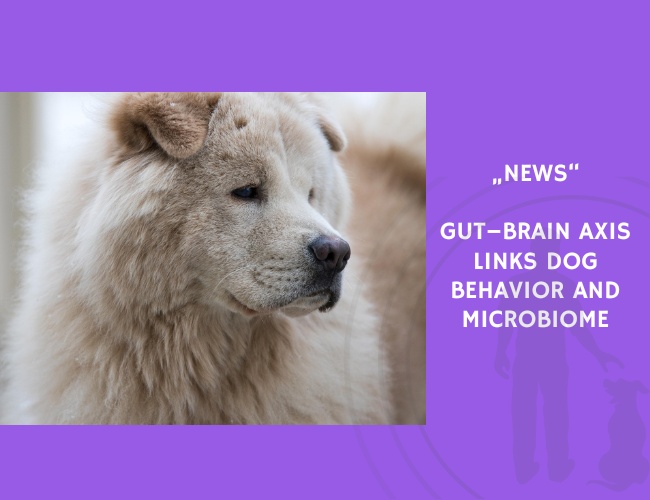Paula Kiełbik and O. Witkowska-Piłaszewicz (2024) reviewed evidence on the relationship between the gut microbiome and canine behavior, noting parallels with human and rodent studies. Their work highlights that the microbiome, immune system, and nervous system continuously communicate, shaping physiology and emotional states.
Key mechanisms discussed:
- Gut dysbiosis is linked with systemic inflammation and the activation of the hypothalamic–pituitary–adrenal (HPA) axis, both contributing to stress and anxiety-like behaviors.
- Neurotransmitters crucial for canine behavior are regulated by microbial activity, with short-chain fatty acids (SCFAs) playing a pivotal role.
- Comparisons with human psychiatric conditions show similar microbiome alterations, suggesting shared biological pathways.
The review also explores therapeutic potential, with particular attention to fecal microbiota transplantation (FMT) as a novel intervention to restore microbiome balance and improve emotional health in dogs. While promising, the authors stress that clinical trials are needed before FMT can be widely recommended in veterinary behavioral medicine.
By synthesizing current evidence, the authors argue that microbiome-targeted approaches may become an essential complement to standard training and behavioral therapies, offering new hope for managing canine behavioral disorders.
Source: Kiełbik, P., & Witkowska-Piłaszewicz, O. (2024). The Relationship between Canine Behavioral Disorders and Gut Microbiome and Future Therapeutic Perspectives. Journal: Animals, Volume 14. Publication Date: July 1, 2024. Authors: Paula Kiełbik, O. Witkowska-Piłaszewicz.










